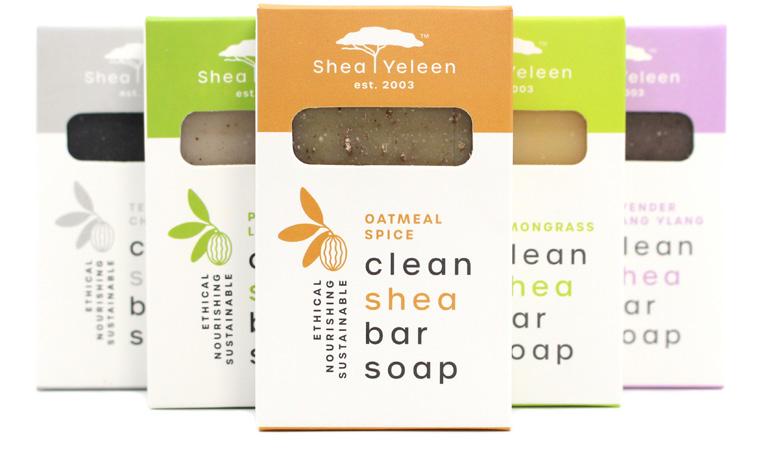
17 minute read
Take Note
DO GOOD
SETTING SAIL
By Sara Hall
Anyone can enjoy being out on the water. With this belief top of mind, the leaders of a local organization have made it their mission to share their love of sailing with people of all abilities. Offering free outings on sailboats with adapted accessibility features, Newport Beach-based nonprofit California Inclusive Sailing helps people with cognitive or physical disabilities enjoy the freedom and empowerment of the sport. “We harness the wind, soak in the sunshine, and lift our spirits,” says co-founder Christian Buhl. “That seems to be true every time we sail with somebody.” California Inclusive Sailing (CIS) customizes every sail according to each person’s abilities. Its services are available to people of all ages, with no prior sailing experience necessary. On their customized voyages, sailors can learn the ropes or sit back and enjoy the ride. With a dedicated volunteer team, CIS transfers sailors safely and comfortably onto a fleet of 16-foot RS Ventures for an enjoyable adventure around Newport Harbor. The adaptive boats have a unique side-byside bucket seat configuration, and each seat has its own vertical tiller that allows for joint steering. The connected tillers allow people of all abilities to take control, while being supported by another passenger in case they need a break or have limited arm strength. Including the sailor and CIS instructor, the boats can also accommodate a total of six people, so physical therapists, family members, and service dogs are invited along for the ride. Sailing encourages independence, boosts quality of life, and brings joy, Christian says. A lot of instincts on the boat transfer over to land-based activities, he notes — like coordination, communication, and awareness of your surroundings. It’s also personally transformative for CIS co-founder John Pascal “J.P.” van Houden, who was diagnosed with Parkinson's disease more than two decades ago at the age of 32. On the adapted sailboat, if his muscles start to stiffen or he becomes paralyzed, he won’t fall overboard. “It’s mentally therapeutic, for sure, and physically, [the therapeutic benefits] come naturally,” he says. “When I go sailing, it calms my whole body.” Because it utilizes the power of wind and there’s a team on board to help, sailing doesn’t require a lot of strength, he explains. Anybody can enjoy themselves out on a boat. “I haven’t met anybody who didn’t like sailing,” he says. “I feel freedom [on the water].” Since 2014, the organization has sailed with hundreds of people from all over Southern California, connecting with individuals and other groups with similar missions. There are a lot of repeat sailors who want to come out again and again. The greatest reward for Christian and J.P. is seeing the joy in the eyes of participants who are facing a variety of challenges in life. “It’s magical when you have the ability and opportunity to help,” says J.P. J.P., who grew up in Holland and was an avid sailor and wind surfer, met Christian while snowboarding in Switzerland. Years later, they reconnected when they ended up living in Newport Beach. They realized that even here, with community resources and waterfront access, people with disabilities still had limited opportunities to sail. Working with members of the Newport Beach Sunrise Rotary Club — including local pro Berkeley Green, who still supports CIS as an instructor — a team of volunteers launched California Inclusive Sailing. “The catalyst was our passion for sailing and to help people get out on the water,” Christian says. The nonprofit raises funds to purchase boats and then donates them to clubs in need of an inclusive sailing program. The first boat went to Life Sail, a Los Angeles-based nonprofit that provides underserved youth with character-building programs through the art of sailing and seamanship. The second and third boats were given to yacht clubs in Richmond and Half Moon Bay. CIS currently sails with the fourth boat in Newport Beach. On Nov. 25, 2021, it received a pledge for a fifth boat, which will stay in Newport. The current boat will be donated to a different club; more than a dozen between LA and San Diego have expressed interest and have a volunteer group behind them. The goal is to give a boat to any club in need, Christian says. Eventually, they hope to see several of these adaptive sailboats cruising around Newport Harbor. “We want to really create a big inclusive sailing revolution down here,” Christian says. “We’re working on one boat at a time right now.”

___ With Southern California’s yearlong moderate weather, CIS can sail in any season.Newport Bay is an ideal setting, Christian says, calling it “Champagne sailing.” The average wind speed is 8 knots and there is a 5-knot speed limit, so it’s slow sailing, making it easy for those new to the sport to feel comfortable. The bay is also well protected from the stronger winds and bigger waves they face out in the ocean, but there is still plenty of room to sail. And if you ask J.P., he’ll be the first to tell you it’s never boring. Most trips stay in the bay, but if participants are feeling, they can sail out to the ocean adventurous (weather and time permitting). J.P. has ventured out into open water a few times himself. “I’m a daredevil in that sense,” he says. He was even part of the CIS crew that participated in the 2021 Newport to Ensenada International Yacht Race. The team completed the shorter competitive event to Dana Point in just over four hours. He definitely plans on racing again, he confirms. CIS sails out of A’maree’s boutique on Coast Highway. It’s hard to find a place that works, Christian notes, because ramps are often too wobbly or too short for people in wheelchairs. Low tide can also be tricky, but he’s bought a handheld, fold-up ramp to help. Currently, the team has to hand-transfer people from wheelchairs onto boats using a few different tools, including a transfer sling with six handles. They make it work, but J.P. explains it could be much easier with a mechanical lift. Getting a mechanical lift at a local, public dock has been a goal since they started the program, Christian says. This year, it’s finally coming true. A lift is scheduled to be installed at Marina Park on the Balboa Peninsula sometime in 2022. Owned by the city of Newport Beach, Marina Park has a lot of sailing amenities, dock and dine restaurants, accessible features, plenty of parking, and a long, wide dock. Once installed, it will be the only public dock in California with a boat lift compliant with the Americans with Disabilities Act; currently, the only transfer lifts in the state are all on private docks. The adaptive hoist would support boating programs, like CIS, and be available to all boaters utilizing the harbor — thus expanding opportunities for the public to learn how to sail and providing equitable access in the harbor. “Newport Beach will be proud to be the first city in California to provide this opportunity for greater access to the water,” says Newport Beach Mayor Kevin Muldoon, who brought the idea of the lift at Marina Park forward to the city council. Kevin, who’s been on the CIS boat a few times with his son, says the organization has really made a difference for a lot of people. “[CIS] is a great program and really changes the lives for those with issues accessing the water.” The ADA transfer lift is a big local milestone for CIS, and one step closer toward its ultimate dream to see the program go nationwide or even international. “We’ve been pretty clear on what we want to do since day one,” Christian says. “The goal is to get more people out on the water.” To learn more about CIS, visit facebook. com/California-Inclusive-Sailing-NewportBeach-2148974655393071.
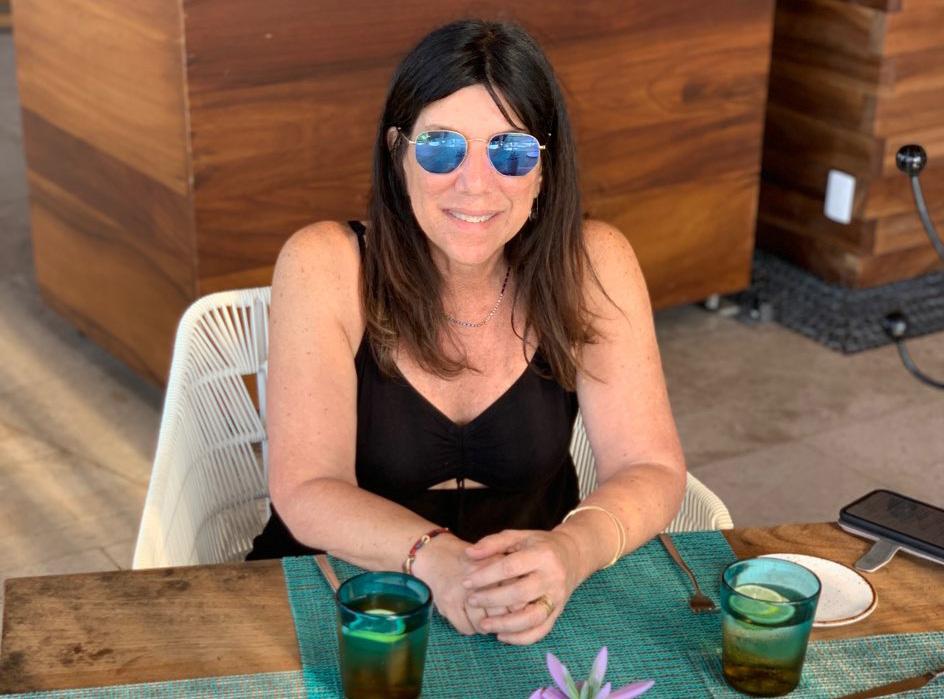
BE WELL
When a cancer journey becomes an education in holistic, cannabis-based healthcare
By Amy Senk
Justine Amodeo was 26 years old, alone in New York City, and had been diagnosed with Hodgkin’s lymphoma. “I was working as a magazine editor,” she says. “I had just left the New York Times and had started a job at Omni magazine when I was diagnosed, literally the first week of work.” She went through a traditional cancer treatment protocol — chemotherapy and surgery. It didn’t work. Two years later, the cancer was back. “I was told I had a 50 percent chance of surviving this time,” she says. “If I was going to die, I wanted to leave my mark on the world and write a novel. I applied to graduate schools on the ocean and in the forest. I had this romantic idea I would go there and breathe my last breaths into a book.” Her odyssey brought her to California, where she found doctors who specialized in Hodgkin’s lymphoma, as well as a husband, family, magazine editing job and, ultimately, a new career journey as a cannabis expert and caregiver at Laguna Beach’s Earth Alchemy Holistic Care. Like most odysseys, Justine’s path had twists and turns after following her dream to UC Irvine’s MFA program in the late 1980s. She continued her journalism career, editing, writing and wandering the globe to craft epic travel pieces. She married and had two children — something she’d been told would likely never happen for her.
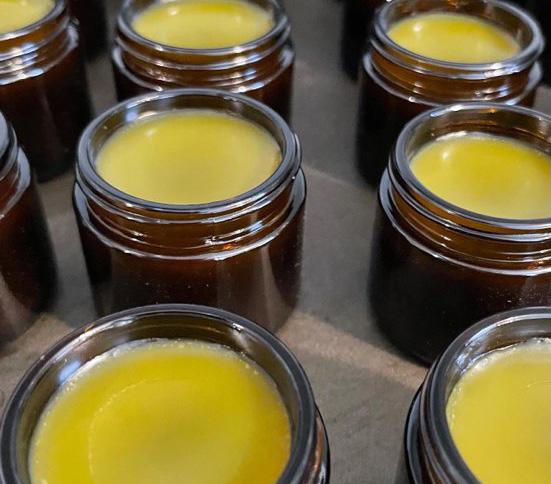
But in 2010, cancer returned, this time an aggressive form of breast cancer detected by chance when she was seeking relief for whiplash after a wild press trip through India. “I decided to embrace everything,” she says. “I’m literally writing a book called ‘I Believe in Everything’ because of all the things I did. Besides going through radiation and chemotherapy, I was doing infrared saunas; I was doing coffee enemas; I was doing hyperbaric oxygen; I was on an alkaline diet; I was juicing. I took a leave of absence from my job. I was exercising every day. I went to a Russian cosmonaut up in L.A. who had some crazy machine that was supposed to cure cancer. I went to a faith healer. Anything that was out there.” She considered cannabis oil, but in 2010, it was very expensive and difficult to find in Southern California — not really an option then, she says. One of her friends, fellow Laguna Beach mom Suzanne DeCarion, had been doing extensive plant medicine and cannabis medicine research; in 2013, Suzanne launched a medical marijuana collective before cannabis was legal recreationally. Justine had already incorporated visualization and diet changes during and after her second cancer treatment, but this time, with Suzanne’s wisdom, she went even further in supplementing her healing with a cannabis oil protocol meant to help keep the cancer in remission. At the time, Justine was helping her with some writing and marketing. But over the years, she became more and more involved with cannabis medicine. One day, Suzanne asked her to talk with another woman going through treatment for breast cancer about some of the steps she herself had taken. It led to more conversations with others, while still working full time as an editor. Eventually, by August 2020 — 10 years cancer free — Justine became a part-time journalist and a fulltime Healer-certified cannabis advisor and cannabis caregiver, working with Suzanne at Earth Alchemy Holistic Care. Many of their clients are stage four cancer patients, but cannabis oil also can help those who have issues with insomnia, anxiety, arthritis, chronic pain, autism spectrum disorders and more. She and Suzanne have worked with children, as well as beloved pets, and consult with doctors who often refer their own patients. The cannabis caregiving business is complicated, regulated by state and local laws that dictate how many plants they can grow, how they can distribute and be compensated for the oils they make and give to clients, and even how many clients they can have at any one time. Justine says they work with each person, studying their diagnosis to create strainspecific, dose-specific protocols. They dive deep with their research, and while they aren’t physicians, they are highly educated in the effects of cannabis, terpene profiles, and in creating the proper cannabis oil dosages. They also offer exercise and nutrition advice, meditation workshops and basic caregiving services. Walking into a recreational marijuana dispensary and asking for products to help medical issues can be a crapshoot, Justine says. “They might have a basic idea of what a medical dose is, but as far as the strain they’re giving you, or what kind of cancer you have, they don’t really know — unless they are a dispensary specifically for critically ill patients. For example, there are different strains for a child with epilepsy or someone with a brain tumor than someone with estrogen-positive breast cancer or lung cancer. And then there are decisions about dosing, which we are constantly changing and following up on. We also have doctors we consult with, including medical cannabis doctors, when we have a complicated situation.” Many doctors are supportive, Justine says, and refer some of their patients as clients. “Some of them have seen miraculous things happen and they want to talk to us about what we did,” she says. “We work with cancer patients who are doctors, who are clergymen, who are teachers, who are very conservative, religious moms and dads who want to live and who are willing to do anything to make that happen.” Justine gets that — she lived it, over and over again. Today, Justine’s health is good; the day before we spoke, she had a clean PET scan, which means she’s still cancer-free. We met at a North Laguna coffee shop beneath her new office, across from her yoga studio, over herbal tea. “Working as a magazine editor full-time for 30 years, I started to feel like, ‘What actual contribution am I making to the world? How am I helping people?’” she says. “I wasn’t personally feeling like this was my dharma, that this was what I was supposed to be doing.” If Earth Alchemy Holistic Care existed a decade ago, Justine says she could have had a “one-stop shop of information” as well as cannabis oils that she couldn’t access at the time. Ensuring that clients going through treatment today have these options for relief adds the purpose that was missing before from her life. “Every time we work with somebody who calls us and says, ‘I’m sleeping, I feel so much better, my tumor markers are going down, the experience with chemo was a breeze, my depression is gone, my pain is gone, my dog is having a miraculous recovery’ — that keeps us going.” earthalchemyholisticcare.com | IG: @earthalchemyholisticcare
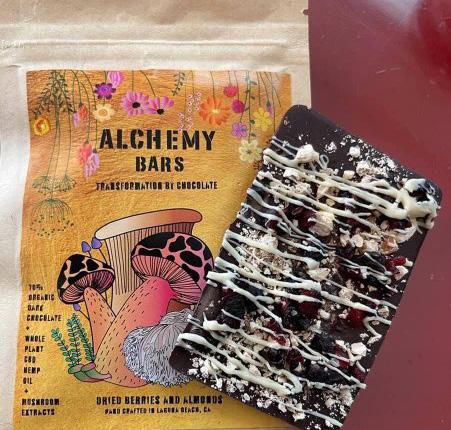
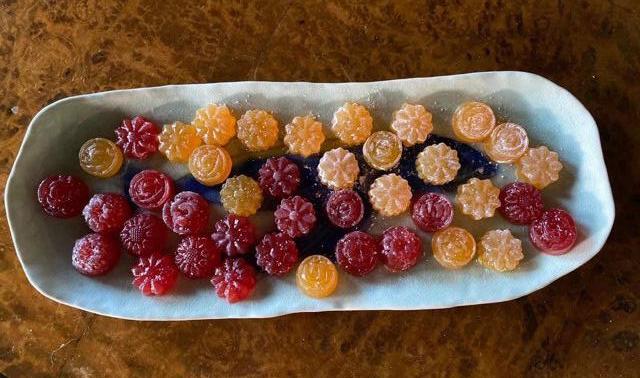
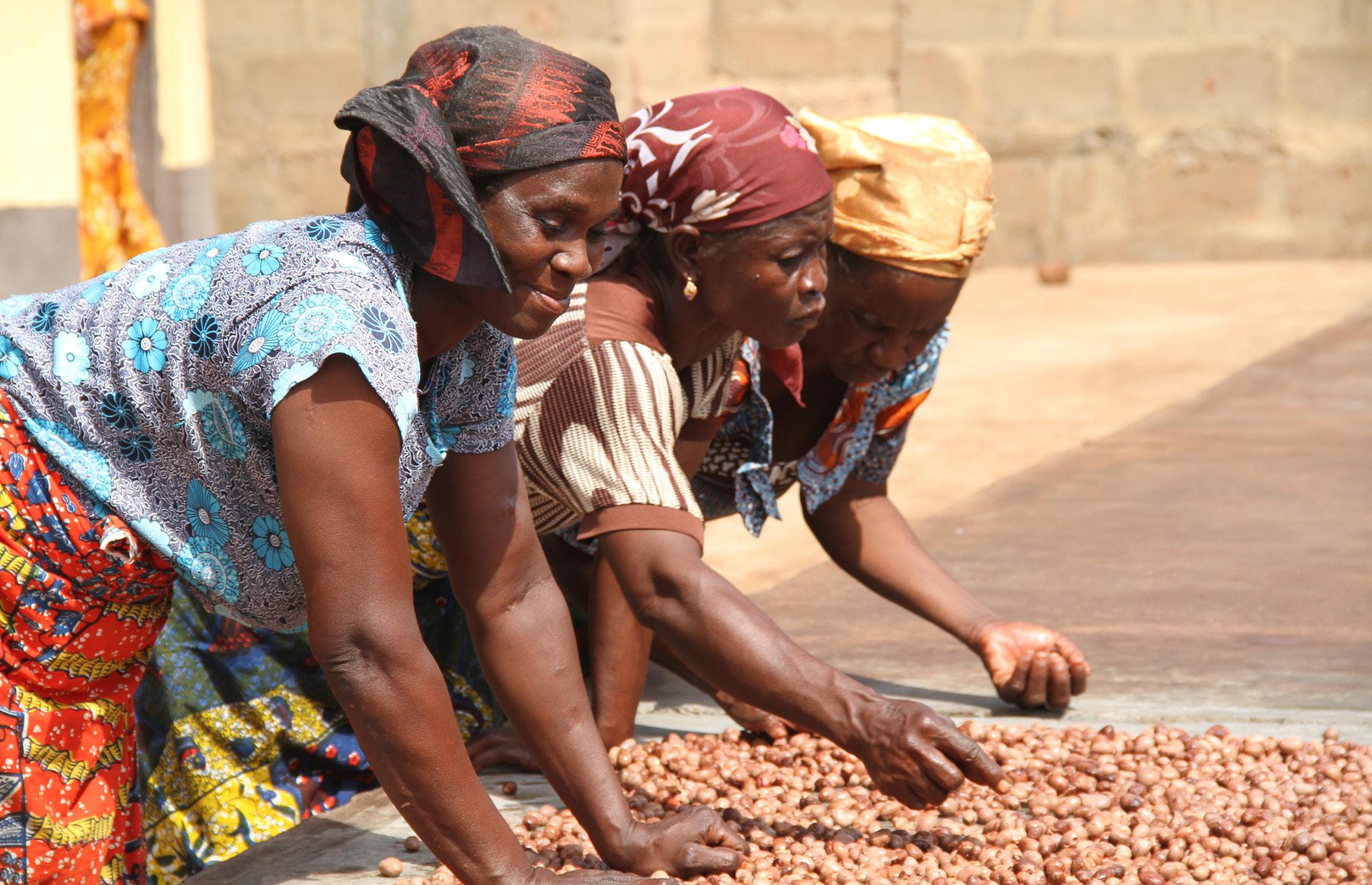
OF INTEREST
EMPOWERING WOMEN, FROM SEED TO SHELF
By Allison Hata
In the concrete jungle where dreams are made and broken, a bright-eyed entrepreneur carried a region’s future in the palm of her hand. Her purpose? To create living wage opportunities for women in Ghana by helping to sell their organic, natural shea butter.
But as Rahama Wright walked the floor of a New York City conference hall in 2011 — holding a small sample container, unable to afford a display table to woo some of the world’s largest beauty ingredient manufacturers — she reached a tipping point. “Imagine a young woman, I think I was in my mid20s at the time, running around like, ‘Hey! Would you like to buy shea butter made in Africa?’” Rahama says. “And these super formal business executives and directors, probably sourcing for Fortune 500 companies, were just like, who is this person?” Rahama is the CEO and founder of Shea Yeleen. Launched in 2005, it then operated as a nonprofit supporting the financial empowerment of African women who harvest shea for commercial manufacturing. “There are an estimated 16 million African women who are part of the global shea butter supply chain, but for decades and decades, they've never been visible,” Rahama explains. “Why are these women so poor, yet they are supplying raw materials to incredibly large, multi-billion dollar industries?” Through Shea Yeleen, she invested heavily in the supply chain. She provided access to capital, helped women acquire equipment and built the infrastructure so they could not only harvest shea, but handcraft it into butter they could sell. Rahama supported everything from filing incorporation documents to technical assistance — but did nothing in terms of marketing. It was in that New York City conference hall, at a gathering hosted by the Society of Cosmetic Chemists, where Rahama had an “aha” moment that changed everything. “I was talking to a guy who was displaying his product and he says, ‘Hey, listen, no one is going to buy that. … No one trusts that African women will make as good quality. Most of the shea we bring to market is chemically processed in Europe and Asia,’” she recalls. At a time when conventional brands were concerned about shelf stability and aesthetic standards, the clean beauty movement was not yet on the radar. The natural, unrefined shea butter from Ghana is devoid of any chemicals and packed with vitamins A, E and F, but also varies in color depending on the type of shea nuts used, as well as the processing method. It posed a challenge for Rahama, who was trying to help the cooperatives find cosmetic industry buyers. “If you're creating a natural, organic product, it's impossible to make it cookie cutter, right? It's still quality. It's still pure and natural. All of that great stuff, but they're not looking for that. They just want something that essentially looks like Crisco,” she says. “If I was going to be able to help these women, … it was actually requiring a complete transformation of the way the market sees this product.” And with that, the idea for Shea Yeleen’s next phase as a social impact business was born, selling its own line of skin care products using shea butter produced by and purchased from women in Ghana. ___ To understand Rahama’s drive and passion for supporting women in Africa, you can draw a dotted line to her time in the Peace Corps. Though she once believed a career in international affairs was in the cards, two years in Mali opened her eyes to the daily issues facing many of her community members.
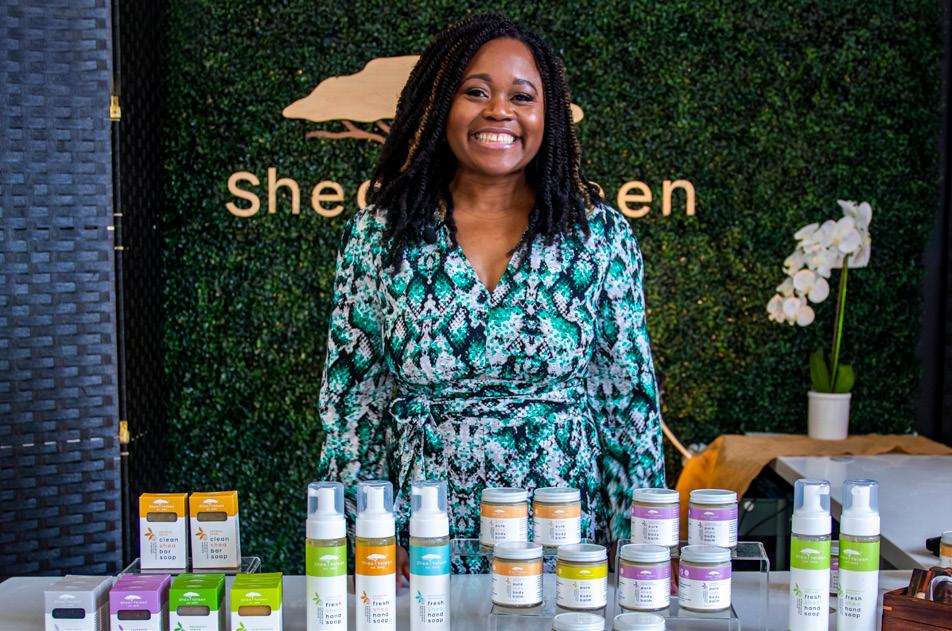
Watching women visit the health center, unable to afford basic medical services, sent her researching potential income-generating opportunities. She educated herself on the supply chains in Africa, where so much raw material like shea grows, but then leaves the continent for international manufacturing and distribution. “I was so certain that these women deserved a seat at the table when it came to the billions of dollars being made using their labor. No one can tell me I was wrong,” Rahama says. “Being able to see the disconnect is part of the reason why I created Shea Yeleen.” Another reason hits a little closer to home. Though Rahama grew up in upstate New York, her mother was born and raised in Ghana by a family who wanted to stop her education and marry her off young — just like so many others who now form shea butter cooperatives with Shea Yeleen. “My mom is those women,” she says. “I see the struggle that she had immigrating to a foreign country and trying to make a better life for herself and her children.” Like her mother, the women in Rahama’s Peace Corps community and those she now works with are real people, not just numbers in a spreadsheet. She has spent time in their homes, met their kids and developed a deep connection beyond a business transaction. One woman, Gladys, shared with Rahama that she experienced violence in her home stemming from the family’s financial struggles. But when she became a shea producer, the relationship with her partner was strengthened. He felt a great sense of pride in her work and relief in knowing her increased income could help with expenses. But most importantly, Gladys had an opportunity to create a better life for her daughter.
